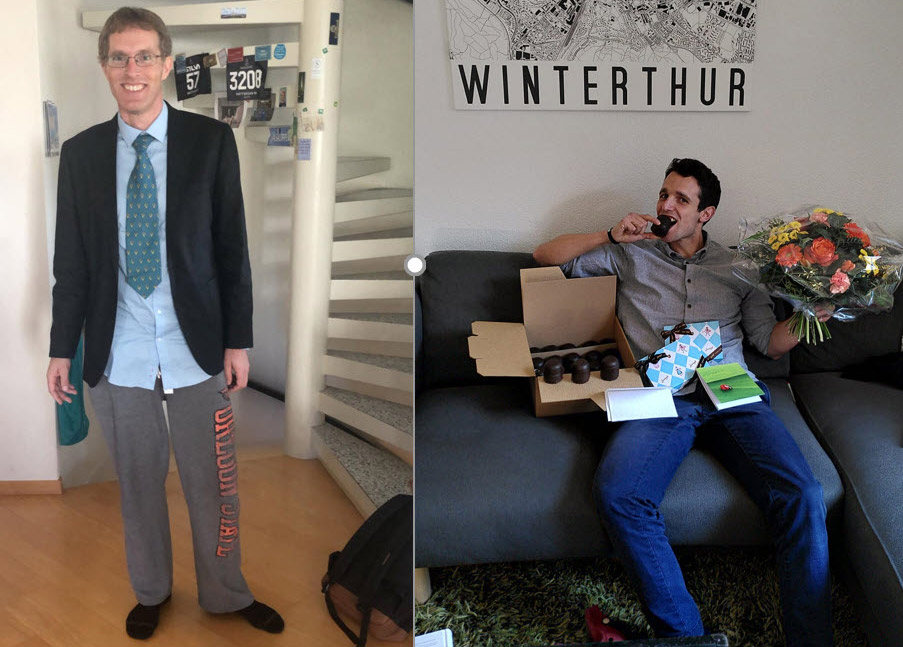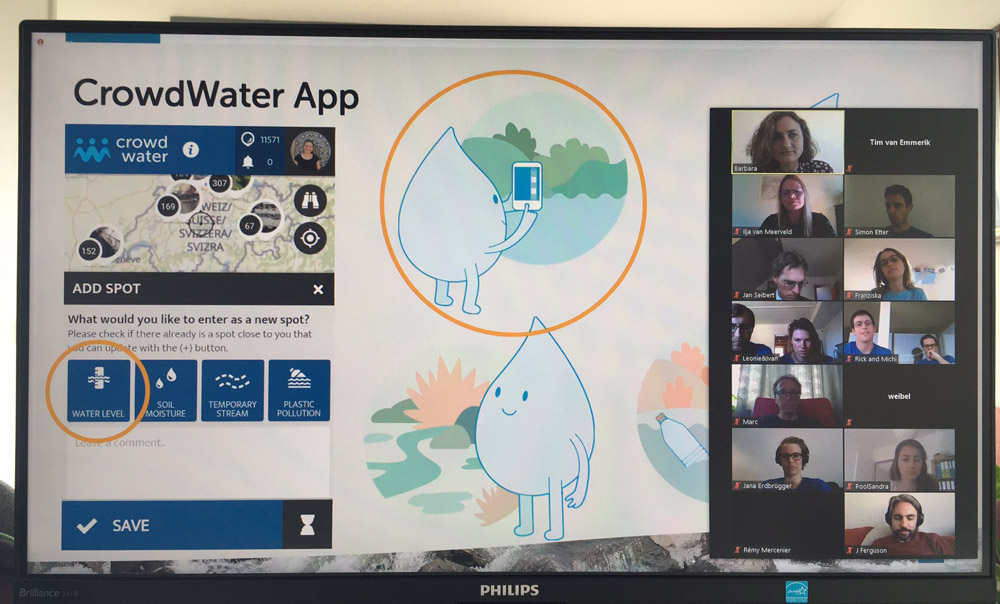#28: The first fully remote PhD defenses
The rapidly changing situation due to the Coronavirus forced us to prepare a new setup for our PhD defenses on March 18. Nobody, not even the presenters, were at Irchel campus. Here are our tips and tricks.
We received some questions about our virtual defenses recently. Therefore, we have written down some tips and tricks to consider. One important point first: Don't forget to arrange a virtual celebration after the defense!
Before:
Who will arrange the meeting?
Coordinate with your supervisor who will arrange the Zoom (or equivalent) meeting. Likely a paid subscription will be necessary, so make sure that somebody (most likely your supervisor) has one. Based on the number of viewers of our virtual defences - which had a maximum of 86 viewers - the plan should include the option of up to 100 listeners. We recommend that the supervisor is the host / admin and therefore can more easily take care of technical problems or chat comments. You merely share your screen with everybody else.
Practise beforehand!
Familiarise yourself with the streaming software and practise beforehand with your supervisor! What are your options and preferences? What features does the software offer? Who do you wish to see while you present? Where are your own slides in relation to the listeners' videos? What options do you have to indicate things? What does the mouse curser look like to others? Our recommendation: mostly highlight things with circles, etc. within the presentation, then you won't need the cursor.
Also important: what is the lighting like in your room? What is your background? What is the sound like? Is there an echo? (Our tip: a clothes drying rack covered with blankets reduces the echo.
Recording, backup of files, body position
Discuss with your supervisor whether you want to record your presentation, e.g. in Zoom the host can record a session.
Send your presentation to your supervisor in advance as a backup, if the screen-sharing from you doesn't work for some reason.
How will you present? Sitting down or standing up? Practise accordingly. If you are standing up the video of you will be smaller and you will be further away from the microphone.
Ask one of your friends to take a few screenshots of your talk and maybe also of the chat. In Zoom you can save the entire chat in a file, but make sure you save it before the session is closed!. During your own presentation you will not have time to check the chat, so you will miss a lot of congratulatory wishes, but just be aware that they are there
Prepare a glass of water and something to write.

During:
Join early, speak slowly
Join the online meeting a little bit earlier than the official start and make sure that everything - screen sharing, camera, sound - works.
On Zoom: People will most probably also join earlier as they will just have their meeting open in Zoom and wait for the host to start the meeting. Then the "breakout-group" function in Zoom is very handy: the host can move you, himself and your committee to a separate meeting to discuss things before the start.
Make sure everybody else is muted and mention this at the beginning of your talk, or most likely your supervisor during the introduction.
Speak slowly to accommodate minor sound delays.
You might feel like you are talking to yourself
When you present you can minimise all the other screens, so that you can better see your own slides, but that also means that you will feel like you are talking to yourself. As a result, you won't see any reactions, no laughing, no nodding, nothing... So that takes some getting used to, but it's ok if you brace yourself for it. You can also ask some specific people to keep their cameras on and pin this person to your screen. Maybe ask a friend to tell people in the chat to unmute themselves once you have finished, and then to give you an applause and some cheering 😊
Your supervisor will (should!) moderate the questions. In Zoom people can either raise their hand or mention their questions in the chat. They will then unmute themselves during their questions and then mute themselves again during the rest of the Q&A.
During the exam you should also have a digital version of your thesis handy, so that you can show plots etc. by sharing your screen with your committee.
After:
The virtual apéro
After the talk you will not have a big crowd congratulating you, unlike during a live defense. Make sure that you have arranged something by yourself to celebrate afterwards. We also had a virtual apéro, which was very nice. You can also arrange a celebration after this situation is over again.
What’s your own experience? We are happy to receive your feedback and recommendations!
Barbara Strobl, Simon Etter

